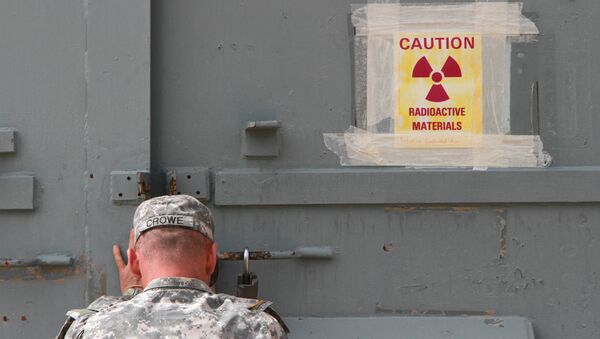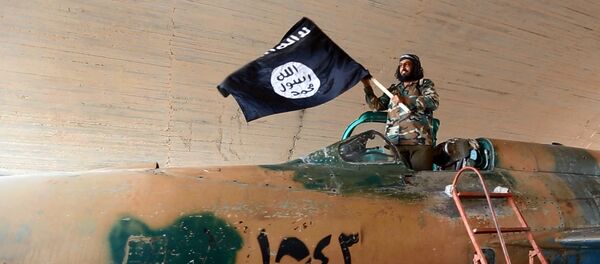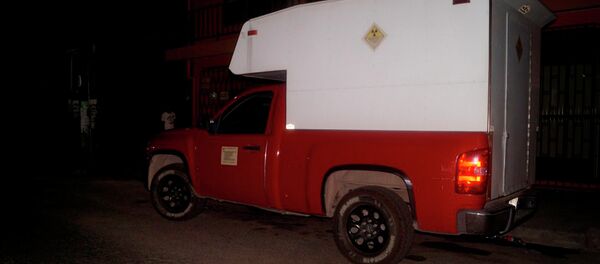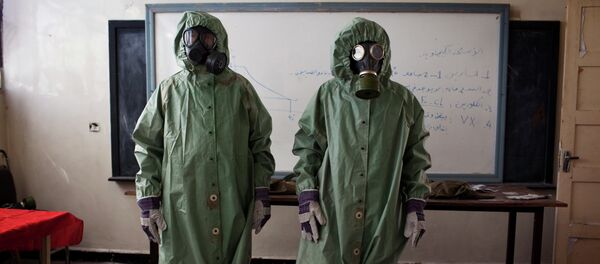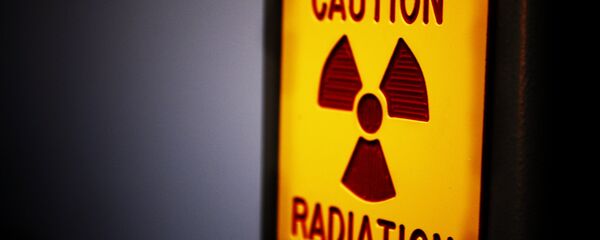"We are afraid the radioactive element will fall into the hands of Daesh," the agency quotes one senior security official with knowledge of the theft without revealing his name.
Meanwhile, there was no indication the material had come into the possession of the group, which seized territory in Iraq and Syria in 2014 but does not control areas near Basra.
The device apparently contained up to 10 grams (0.35 ounces) of Ir-192 "capsules", a radioactive isotope of iridium also used to treat cancer, a senior environment ministry official based in Basra confirmed.
Iridium is the 77th element on the periodic table, and is a very dense, platinum-like metal that is highly resistant to corrosion. It is often recovered as a byproduct of nickel mining, and is used in electrical connections and to harden platinum.
The International Atomic Energy Agency defines iridium-192 as a category-2 radioactive substance. This means the substance can permanently injure a person who handles the radioactive material in just minutes, and it can kill people in close proximity within hours.
The oil field in Basra likely was using iridium-192 to test flaws in materials used for oil and gas pipelines in a process called industrial gamma radiography.
How it Can Be Used for a Dirty Bomb
A dirty bomb combines nuclear material with conventional explosives to contaminate an area with radiation, in contrast to a nuclear weapon, which uses nuclear fission to trigger a vastly more powerful blast.
"They could simply attach it to explosives to make a dirty bomb," an official, who works at the Iraqi interior ministry told Reuters.
"But you can scare the bejesus out of people."
Chris Hunter, a former bomb disposal officer, told RT that Daesh may already have enough material for a dirty bomb as the group has gained control over huge areas with dams, power facilities and hospitals where they can source radioactive materials.
He however also suggested that it will be difficult for the militants to make and use a dirty bomb, despite having “a very advanced capability when it comes to weapons.”
“But terrorism is, of course, about terrorizing and scaring people and when we talk about a dirty bomb – it is something that people are very concerned about,” he added.
"No broken locks, no smashed doors and no evidence of forced entry," he stated.
Reuters obtained possession of a document which showed that the material, stored in a protective case the size of a laptop computer, went missing last November from a storage facility near the southern city of Basra belonging to US oilfield services company Weatherford International PLC.
Another document produced by the environment ministry addressed to the ministry's Centre for Prevention of Radiation, describes "the theft of a highly dangerous radioactive source of Ir-192 (Iridium-192) with highly radioactive activity belonging to SGS (Istanbul-based company) from a depot belonging to Weatherford in the Rafidhia area of Basra province".
Therefore, it still remains unclear whether the material was just misplaced, or actually stolen.

